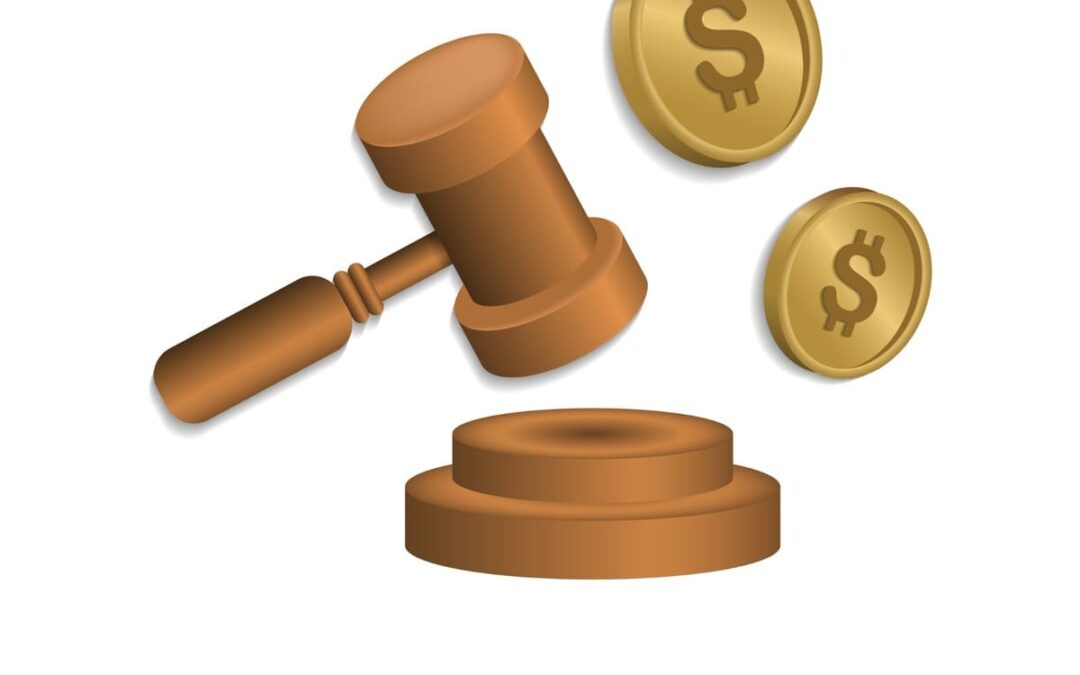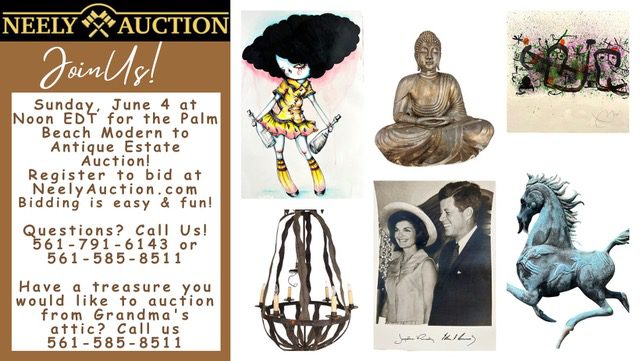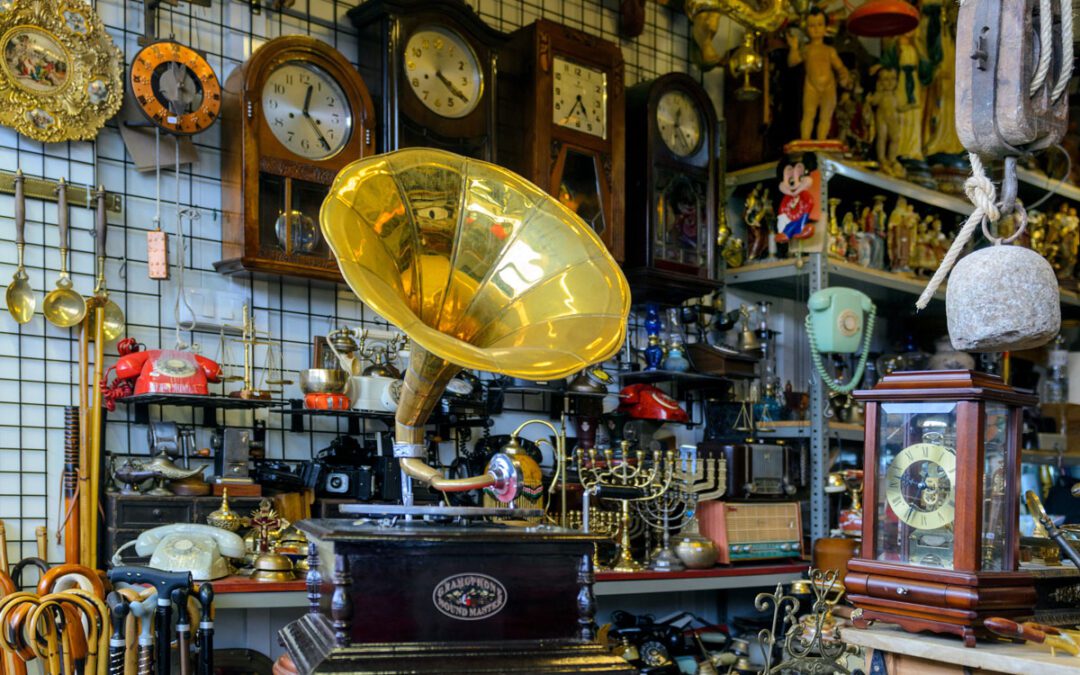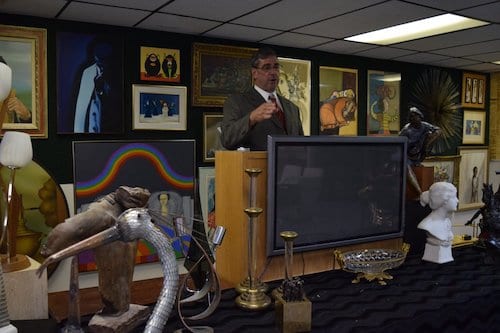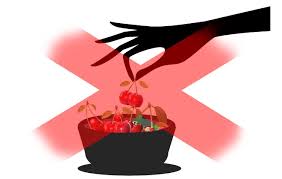
by Neely Auction | Jul 20, 2024 | Blog
Antique and fine art auctions are events where collectors, dealers, and art enthusiasts can buy and sell valuable, often rare, items. These auctions can be held in physical auction houses or online platforms. Here’s a guide to understanding and participating in antique and fine art auctions:
1. Types of Auctions
– Live Auctions: Held in physical locations where bidders can attend in person. These auctions may also accept phone and absentee bids.
– Online Auctions: Conducted on digital platforms where bidders can participate from anywhere in the world. Examples include Sotheby’s, Christie’s, and Heritage Auctions.
– Silent Auctions: Bidders submit their bids without knowing the competing offers. The highest bid wins the item.
2. Research and Preparation
– Understand the Market: Research the types of items you’re interested in, their typical price ranges, and recent auction results.
– Catalog Review: Auction houses publish catalogs of items for upcoming auctions. Review these catalogs to identify pieces of interest.
– Condition Reports: Request condition reports for items you’re interested in to understand their current state and any restorations or damages.
3. Bidding Process
– Registration: Register with the auction house before the auction. This may involve providing identification and financial information.
– Bidding: You can bid in person, online, via phone, or by submitting an absentee bid. Understand the bidding increments and be prepared to act quickly.
– Buyer’s Premium: Be aware that a buyer’s premium (a percentage of the final hammer price) is added to your winning bid. This fee varies by auction house.
4. Valuation and Authentication
– Expert Appraisals: Items in auctions are often appraised by experts to determine their value and authenticity.
– Provenance: Provenance refers to the history of ownership of an item. A well-documented provenance can increase an item’s value.
5. Payment and Collection
– Payment Terms: Understand the payment terms and deadlines. Auction houses typically accept various forms of payment, including bank transfers, credit cards, and checks.
– Collection: Arrange for the collection or shipping of the items you win. Some auction houses offer shipping services for an additional fee.
6. Tips for Buyers
– Set a Budget: Determine your maximum bid in advance and stick to it to avoid overpaying in the heat of the moment.
– Know the Terms: Read the auction house’s terms and conditions carefully, including return policies and fees.
– Inspect Items: If possible, inspect items in person or through high-resolution images provided by the auction house.
7. Tips for Sellers
– Choose the Right Auction House: Select an auction house with a strong reputation and expertise in the type of items you’re selling.
– Reserve Prices: Set a reserve price (the minimum price you’re willing to accept) if needed. Be aware that items may not sell if the reserve price is not met.
– Marketing: Work with the auction house to ensure your items are well-promoted to attract potential buyers.
8. Popular Auction Houses
– Sotheby’s: Known for high-end fine art, antiques, and luxury items.
– Christie’s: One of the most renowned auction houses, offering a wide range of fine art and collectibles.
– Heritage Auctions: Specializes in collectibles, including coins, comics, and sports memorabilia.
– Bonhams: Offers a variety of auctions, including fine art, motor cars, and jewelry.
9. Online Auction Platforms
– eBay: A popular platform for a wide range of antiques and art, though not always at high-end auction house prices.
– Invaluable: Connects buyers and auction houses for live online bidding.
– 1stdibs: Offers high-end antiques, art, and luxury items.
By understanding these aspects of antique and fine art auctions, you can navigate the process more effectively, whether you’re buying or selling.

by Neely Auction | May 24, 2023 | Blog
Location
Neely Auction & Estate Auction 838 E Coast Ave, Lantana, FL 33462
Title
The Palm Beach Modern to Antique Estate Auction!
Time
Noon Eastern Time 12:00 PM EST
Date
June 4th 2023
Join us Sunday, June 4 at Noon Eastern for The Palm Beach Modern to Antique Estate Auction! Take a moment to view our latest selection of art, antiques, sculptures, furniture, jewelry, books, autographs, crystal, silver and collectibles to be brought to the Neely auction block. Styles range from traditional to post-modern and include designers, artists, and makers such as Gucci, Peter Vanderlaan, Orrefors, Neiman Marcus, Frankoma, E. Drollos, McCoy, Hyalyn, Eleanor Lefkowitz, Rembrandt, Kelly Vivanco, Nuccio Fontanella, Soto, Erte, Romain de Tirtoff, David Gerstein, R. De Luca, Ludovico de Luigi, Walter Furlan, Bill Mack, Peter Frampton, George Harrison, Mick Jaeger, Roberta Flack, Yoko Ono, Sony & Cher, Charlie Chaplin, Apollo 11, Arnaud & Sneeze, R NO, Peter Max, Bowery Bob graffiti, Princess Diana Beanie Babies, Medicom, Andre, Jacqueline Kennedy, Elizabeth Taylor, Jane and Henry Fonda, Kosta Boda, Waterford, Dom Perignon, Murano Italy, Jeremiah Ketner, Taylor McKimens, Bojo Lawrence, Fluffy Pop, Grey, C McCormick, Dr. Revolt, J Edwards, C Sheddeen, Jesse Edwards, R Yang, Duaiv, Warhol, Elizabeth Arden, Pinkytoast, David Lebo, Audrey Kawasaki, Neil Diamond, Sarah Joncas, Joan Miro, Fay Peck, James Coignard, Marcel Mouly, Melanie Stimmell, Charles Fazzino, James Rizzi, Renoir, Andrew Bone, Chris DeRubeis, Yuval Wolfson, Kre8, Charles Lee, Itzchak Tarkey, Jose Luis Cuevas, Neil Emile Bellet, Anatole Krasnyansky, Mark Kanovich, Jasmine Becket-Griffith, Kamille Freske, Kayla Ascencio, Anita Inverarity, Death NYC, Simona Candini, Jaz Higgins, Lu Hong, Jiang Tie Feng, Ting Shao Kuang, Anarkitty, Ingrid Tussell Domingo, Lizzy Falcon, Tatiana Suarez, Bec Winner & Alex Louisa, Vincent Cacciotti, Sybile, Michael Shapcott, Brynn Elizabeth, Leslie Ditto, Glenn Arthur, Kurtis Rykovich, Paulina Gora, Charles Seidman, Zhenya, John Gould, Fanch Ledan, Victor Vasarely, Calman Shemi, Gaylord Soli, Walt Disney, Hanna Barbera & Joe Barbera, Alvin, G-Shock Dee & Ricky, Rolex, Cartier, Tanzanite, silver coins, commemorative coins, and a few artists we were not able to read their signatures; will you find a hidden gem?

by Neely Auction | Apr 15, 2023 | Blog
Antique and estate buyers are individuals or companies that purchase antique and vintage items, including furniture, artwork, jewelry, and other collectibles, from individuals or estates. Here are some key things to know about antique and estate buyers:
- Types of Buyers: Antique and estate buyers can include professional dealers, auction houses, and individual collectors. Some buyers specialize in certain types of items, such as jewelry or artwork, while others may have a broader range of interests.
- Services: Antique and estate buyers can offer a range of services, such as appraisals, estate sales, and purchasing individual items or entire estates. They may also provide assistance with packing and transporting items.
- Value: The value of antique and vintage items can vary widely based on factors such as age, rarity, condition, and historical significance. Antique and estate buyers use their expertise to assess the value of items and make fair offers to sellers.
- Selling: If you have antique or vintage items that you would like to sell, you can research local antique and estate buyers, ask for referrals from friends or family members, or work with a consignment shop or auction house.
- Authenticity: When selling antique or vintage items, it is important to ensure their authenticity. Working with a reputable antique or estate buyer can help ensure that your items are accurately assessed and valued.
If you are considering selling antique or vintage items, it is important to research potential buyers carefully and understand the value of your items. Working with a professional buyer can help ensure that you receive fair value for your items and that they are sold to collectors who will appreciate and care for them.
